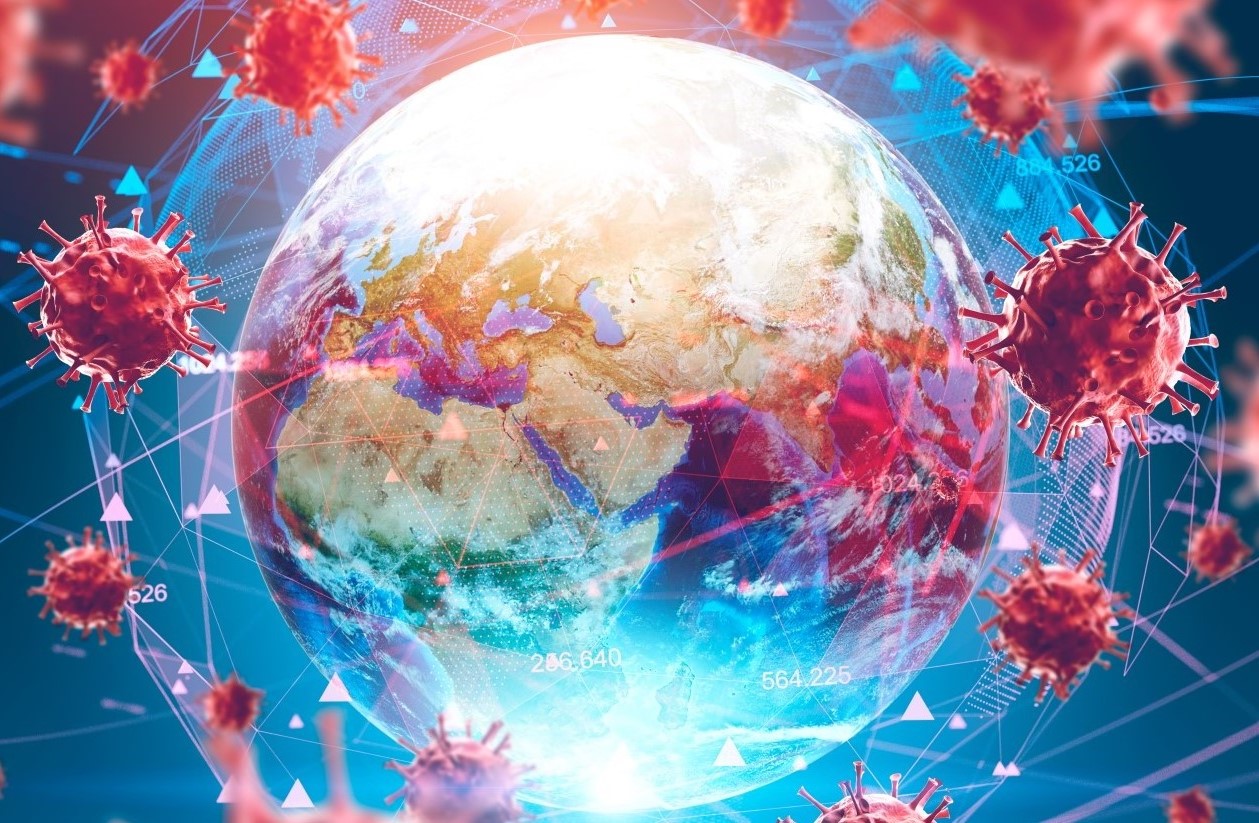
Pandemics have always been a topic of intrigue and fascination among scientists, historians, and the general public. These global outbreaks of infectious diseases have shaped human history, leaving an indelible mark on society. From the Black Death to the Spanish flu, pandemics have caused massive disruptions, loss of life, and societal upheaval.
In this article, we will delve into the enigmatic world of pandemics and explore 18 intriguing facts that shed light on their impact, origin, and consequences. From the origins of pandemics to the underlying factors that contribute to their spread, we will uncover captivating details that will broaden our understanding of these devastating events.
So, fasten your seatbelts as we embark on a journey through the enigmatic realm of pandemics, traversing both the historical and scientific aspects that make them a fascinating subject of study.
Key Takeaways:
- Pandemics, like COVID-19, are global outbreaks of contagious diseases that can have major social, economic, and political impacts, affecting people worldwide.
- Vaccines, awareness, and early detection are crucial in fighting pandemics, and throughout history, pandemics have driven advancements in medical research and technology.
A pandemic is a global outbreak of a contagious disease.
A pandemic occurs when a new infectious disease spreads across different countries and continents, affecting a large number of individuals.
The Spanish Flu pandemic of 1918 infected approximately one-third of the world’s population.
This devastating pandemic caused an estimated 50 million deaths worldwide, making it one of the deadliest pandemics in history.
The Black Death pandemic in the 14th century wiped out nearly 50% of Europe’s population.
It was caused by the bacterium Yersinia pestis and spread through fleas on rats, leading to widespread death and economic and social upheaval.
Pandemics often have significant social, economic, and political impacts.
They can disrupt economies, strain healthcare systems, and create social unrest, leaving lasting effects for years to come.
The HIV/AIDS pandemic has claimed the lives of over 32 million people worldwide.
First identified in the 1980s, this pandemic continues to affect millions, with ongoing efforts to prevent and find a cure for the disease.
The term “pandemic” derives from the Greek words “pan” meaning “all” and “demos” meaning “people.”
It emphasizes the widespread nature of the disease, affecting people across different regions and populations.
The fastest-spreading pandemic in history is believed to be the 2009 H1N1 influenza pandemic.
It spread to more than 200 countries within a matter of months, affecting millions of people worldwide.
Pandemics can occur as a result of animal-to-human transmission.
Zoonotic diseases, such as COVID-19 and Ebola, can jump from animals to humans, leading to the spread of the disease among human populations.
The World Health Organization (WHO) plays a crucial role in monitoring and responding to pandemics.
They provide guidance, coordinate international efforts, and work to prevent the spread of diseases on a global scale.
Pandemics can have long-term effects on mental health.
The fear, anxiety, and grief associated with pandemics can impact individuals’ mental well-being and contribute to increased rates of depression and anxiety disorders.
Vaccines play a vital role in preventing and controlling pandemics.
They help build immunity and reduce the spread of infectious diseases, saving millions of lives.
Travel restrictions and quarantine measures are often implemented during pandemics.
These measures aim to limit the movement of infected individuals and prevent the further spread of the disease.
The COVID-19 pandemic led to an unprecedented global effort to develop and distribute vaccines in record time.
Scientists and pharmaceutical companies worked tirelessly to create safe and effective vaccines to combat the virus.
The 18th-century smallpox pandemic resulted in the development of the first successful vaccine.
Edward Jenner’s discovery paved the way for modern immunization practices and helped eradicate smallpox worldwide.
Pandemics have historically shaped human history and societal structures.
The impact of pandemics can be seen in changes to healthcare systems, sanitation practices, and the way societies function.
Pandemics can be caused by various types of pathogens, including viruses, bacteria, and fungi.
Each pathogen behaves differently and may require different strategies for prevention, containment, and treatment.
Awareness, preparedness, and early detection are crucial in mitigating the effects of pandemics.
Timely and coordinated responses can help reduce the spread of the disease and save lives.
Pandemics have spurred advancements in medical research and technology.
Throughout history, pandemics have driven scientists and healthcare professionals to develop innovative solutions and improve healthcare systems.
Conclusion
In conclusion, pandemics have shaped the course of human history in profound ways. They have caused widespread devastation, fear, and loss, but they have also served as catalysts for scientific advancements, improved healthcare systems, and global cooperation. The enigmatic nature of pandemics lies in their ability to emerge unexpectedly, evolve rapidly, and impact societies on a global scale.
Studying past pandemics and understanding their patterns can help us prepare for future outbreaks. From the Black Death to the Spanish Flu, pandemics have taught us valuable lessons about the importance of public health measures, early detection, and swift response. It is crucial that we continue to invest in research, develop effective vaccines, and strengthen healthcare infrastructure to mitigate the impact of future pandemics.
By learning from history, using technology to track and monitor infectious diseases, and fostering international collaboration, we can strive to prevent and control pandemics more effectively, safeguarding the well-being of our global community.
FAQs
1. What is a pandemic?
A pandemic is the worldwide spread of a new infectious disease that affects a large number of people across different countries or continents.
2. How do pandemics start?
Pandemics typically start when a novel pathogen emerges and spreads through human-to-human transmission, often originating from animal hosts.
3. What are the common symptoms of a pandemic?
The symptoms of a pandemic can vary depending on the specific disease, but they often include fever, cough, difficulty breathing, body aches, and fatigue.
4. How can we prevent the spread of pandemics?
Preventive measures such as practicing good hygiene, maintaining social distancing, wearing masks, and getting vaccinated can help reduce the spread of pandemics.
5. What is the role of governments during a pandemic?
Governments play a crucial role in managing pandemics by implementing public health measures, coordinating healthcare systems, and providing accurate information to the public.
Pandemics have shaped our world in countless ways, leaving enigmatic facts and lasting impacts. If you're curious about other captivating topics, consider exploring the glitz and glamour of Las Vegas, the tireless efforts of a renowned medical expert, or the lesser-known aspects of a city that gained global attention. Each subject offers a unique perspective and a wealth of intriguing information waiting to be discovered.
Was this page helpful?
Our commitment to delivering trustworthy and engaging content is at the heart of what we do. Each fact on our site is contributed by real users like you, bringing a wealth of diverse insights and information. To ensure the highest standards of accuracy and reliability, our dedicated editors meticulously review each submission. This process guarantees that the facts we share are not only fascinating but also credible. Trust in our commitment to quality and authenticity as you explore and learn with us.


